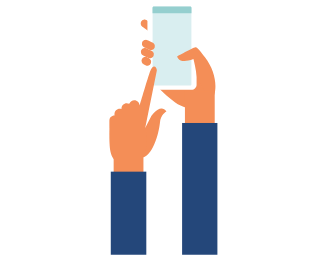Recovering from ARFID
Have you heard of ARFID before? I hadn’t, until I was 22. This disordered eating I had put up with my whole life was finally given a name.
I’m Tahlia, and I’m in recovery from ARFID (avoidant restrictive food intake disorder). ARFID can include aversions to food texture, taste or smell, even appearance, or can be more associated with a fear of choking, or being sick, or food poisoning. It can also mean a complete lack of interest in food, not experiencing hunger, the list goes on.
How it started
For me, ARFID developed at a very young age. I wouldn’t wake up for feeding as a baby, then I couldn’t eat solid food. As I grew up I was extremely fussy, which you know, some kids are! But the difference being that I never grew out of this.
As I grew up, I found it very difficult to eat more than a few key foods that I actually liked, I struggled to eat in the big school canteen, and as a result I was underweight and unhappy. The worst part of it was going to doctors, and no one being able to give me or my parents an answer. When I was around 15, I spoke to a school nurse who actually managed to get me referred to an eating disorder dietitian within CAMHS. I felt hopeful about this but pretty quickly I was misdiagnosed with anorexia, despite explaining my symptoms and how they were very different from anorexia thoughts and feelings. For months I was treated for anorexia, with very little success, and eventually managed to discharge myself.
I decided at this point that if I wasn’t able to get help, I needed to work something out for myself. I began eating three meals a day strictly, even if it was the exact same meals every day, even if I had to eat the same meal twice in a day. Most of my foods at this point were carbs, some meats, and soon enough I started to put on some weight and felt happier than I was no longer being looked at as unwell.
I actually ended up going to University in Cardiff, which was a whole challenge in itself as you could imagine (flatmates, drinking, dirty dishes!), but a perk was being in a city, instead of my rural countryside home. Here, I managed to get referred to an eating disorder dietitian, who referred me onto a psychological therapist, and this wonderful person was the first person to say the word ‘ARFID’ to me.
“I remember reading through an information booklet and just mentally ticking off the symptoms, it was as if I had written this page.”
I took part in a twenty-session CBT treatment, with some exposure therapy. I learnt a lot about my thoughts and negativity towards food, and as a ‘guinea pig’ to the programme in Cardiff, I really hope it continues to help others. The CBT was helpful because we discussed things that were not strictly related to food, but very clearly had an impact on my life and my eating habits. We saw that the smallest stress had an effect on my eating or my fears around it . For example, say there’s an event coming up; a few days before I would stop eating a lot of foods and just eat my very plain, very safe meals, chicken nuggets, waffles, bread, to reassure myself that I hopefully shouldn’t get food poisoning beforehand. This was done so subconsciously that I didn’t know I was doing this until we really got into my patterns.
After being discharged, I’ve since been in touch a little, I spoke at a conference for healthcare workers across Wales, which I was thrilled about.
What recovery means for me
For me, recovery takes active effort every single day, some days are easier than others for sure, and I can see what a long way I’ve come since eating chicken nuggets twice in a day because I didn’t like anything else.
Recovery for me means my life will not revolve around food and meticulous meal-planning. It’ll mean a spontaneous trip to a cafe or restaurant, and I won’t be panicking about the menu. In the further future, it hopefully means having children and raising them with a healthy view of food, and being able to cope if they get a bit messy during a mealtime!
I think the best advice I was given was to recover at my own pace. I don’t need to be eating in a posh restaurant tomorrow, or even eating ‘correct’ foods at certain times of the day. If I wanted to eat breakfast foods before bed then I should do so, and not worry about other people’s opinions. Also, no one can make you recover, you need to want to do it for yourself, it does take work but there’s so many positives to doing so.
